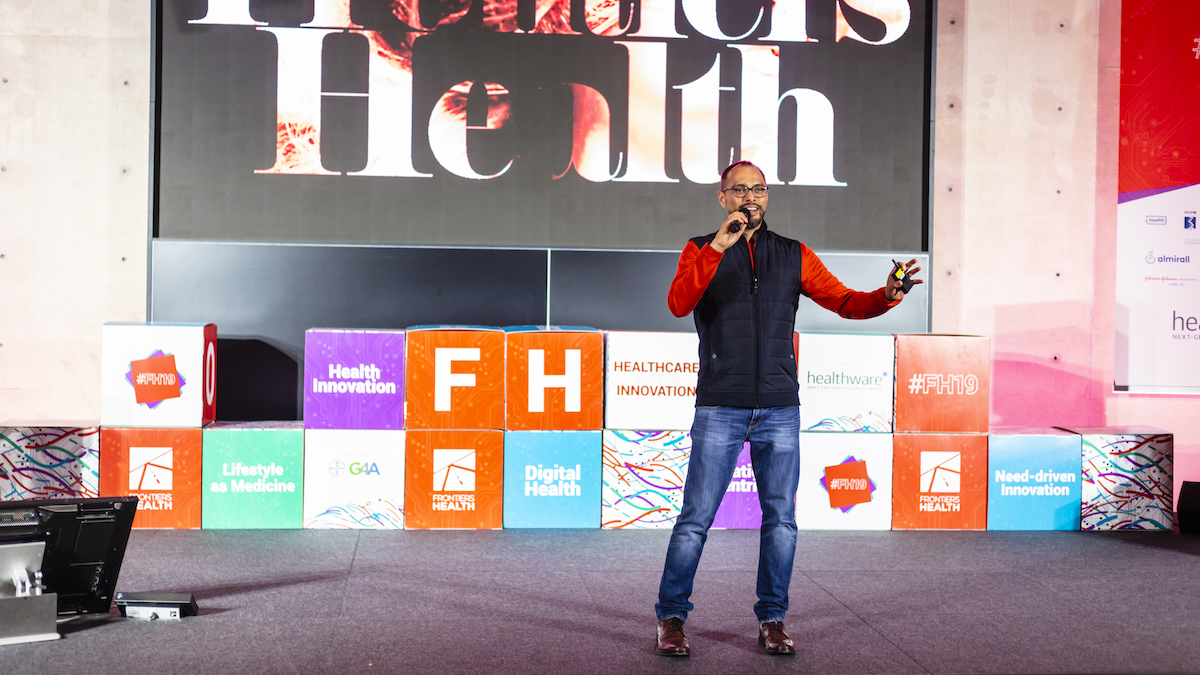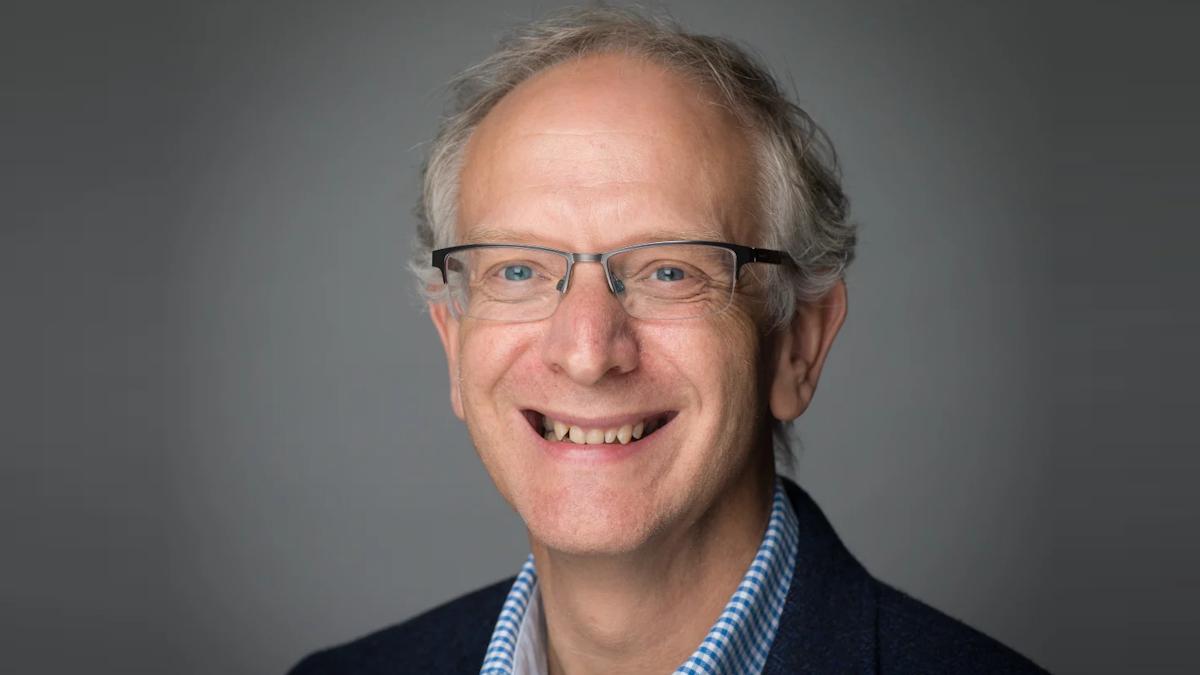Frontiers Health Steering Committee spotlight: Tony Estrella

Tony Estrella is many things – a podcast host, a novelist, a digital health strategist, and a member of the Frontiers Health Steering Committee, to name a few. But what underlies all his work is a passion for global health equity, and for using the tools of health innovation and digital health to improve access to care for all countries.
“For me, the conversation about health equity starts with the fact that I was born in Mexico, while I was raised in Japan and the US, which were two highly mature, highly efficient, well-resourced economies and, therefore, healthcare systems,” Estrella told pharmaphorum. “Being born and raised in Mexico, and then my wife is from Malaysia, I've seen first-hand and through a lot of travel how life works when you don't have well-resourced health systems. So, it's always been at the back of my mind when I've been in healthcare for 20 plus years, that one of the objectives that I always wanted to delve into was to address the challenges that come with health inequality.”
At Frontiers Health 2022, Estrella will be focusing especially on Digital Public Health, one of the conference’s overarching themes. In Milan, he wants to challenge health entrepreneurs to think about how they balance the priorities of business success and social obligation, especially in light of recent global events.
“There's way too much emphasis placed right now in the business of healthcare and not enough on the social good,” he said. “If we look at what COVID has done, it's only really brought to the forefront those challenges. And if something was not working in a small way, that crack turned out to be a fissure. And if we already had a fissure in a kind of somewhat broken health system, say something like in India, then that fissure ended up being a chasm.”
How public health is changing
Estrella says that public health, as it’s generally understood, consists of three elements: government-supported sick care, reducing environmental impacts of healthcare, and “one-size-fits-all” guidelines and regulations. All these elements are swept up in the ways that healthcare is changing, as a result of digitisation and other trends.
“[With] personalised health, we're moving to an area where we're providing the right intervention, to the right individual, at the right time,” Estrella said. “And what that means is that we're moving from sick care to prevention. We're moving from reducing environmental impacts on basic health to investing into how we bring better planetary health, and how that converts into things like eliminating pollution, and moving from one-size-fits-all models of care to customisation.”
But while new care models and technologies can help address health equities, they aren’t a cure-all. And digital public health is going to require being realistic about available resources.
“What personalised health can't be is an assumption that all expensive innovations for health are available to everybody, because it just doesn't work that way,” he said. “You basically have to figure out how to reallocate existing levels of resources in a better way, so that more people, and ideally all people, get some level of basic care.”
Whose responsibility is public health?
Even the appellation ‘public health’ can be problematic when it suggests that caring for the most vulnerable is the problem of governments and non-profits alone, Estrella says. Instead, governments should worry about creating infrastructure that allows the private sector to profitably innovate to help people. As an analogy, electric cars as an area where governments and private innovators are working together to rapidly improve infrastructure to serve a public good (in that case, reduced emissions).
“[Electric vehicle manufacturers] don't have to worry about how [a car is] going to get from point A to point B – that's already been sorted. Governments and private industry have come to some level of a balance that roads, which can be used for a lot of other things besides electric vehicles, are there. Now, they have to come together in a slightly new way because what needs to happen for EVs to be widely scaled and used is charging points […] And I think, if I look at where health care needs to go, that's the type of balance that needs to be struck.”
When it comes to healthcare, the infrastructure is more complex than roads and charging stations – it includes interoperability, data infrastructure, and cross-national regulation and reimbursement. That last area, Estrella says, is a good example of how incentives for innovators aren’t currently lined up to support global health equity.
“You can go around the room at Frontiers or any conference, and […] everybody's in the US,” he said. “From Israel, from Europe, from Asia, and they relocate headquarters to be in the US. That’s where I can make money because the reimbursement system is really well-defined. And when a reimbursement system is well-defined and I can create a product-market fit, I can get paid for the innovation that I'm creating, and I can build a business and grow. It's much harder in Europe because there're multiple boundaries that separate countries. Same thing in Asia. Africa doesn't have the wealth levels, on top of the fact that it's also fragmented. So, really, the US market and China are the two that have the combination of large market and mature healthcare systems, and mature reimbursement systems. That's not helping. It's not helping this problem, right?”
What innovators can do
Not all innovators are laser-focused on those few most-profitable markets, Estrella says. There is success to be found working with low-access and low-income populations. He points to Shuchin Bajaj, CEO of Indian hospital system Ujala Cygnus, whom he recently interviewed for a podcast.
“He could have gone to the US and made a lot of money and been able to sustain a life that worked well for him as an individual. But he made the decision that he wanted to help as many people as possible in India in this particular category [of low-income individuals],” Estrella said. “And the story of what he built and the success that he built so far, I think, is one example of how to change the focus and build and still achieve business success while addressing the broader social good of health care.”
Estrella hopes at Frontiers Health 2022 he’ll find more examples of entrepreneurs balancing the bottom line with social responsibility.
“I'd love to connect with individuals who have stories to share that should be more elevated and shared with others. And I'd love to be a method of amplification for what those stories are -because success breeds success. I've spoken to entrepreneurs in the past who said, ‘I have a model where I focus on making sure that I'm building and generating revenue and profits because of my private investors, but at the same time, I'm giving product away in developing countries so that I can learn how to build a business there.’ I'd love to learn more about examples like that.”
Frontiers Health will be held on 20th and 21st October at the Palazzo del Ghiaccio in Milan, Italy, as well as online. Click here to register. You can find Tony Estrella at “Beyond video visits. How advanced telehealth will scale and transform care delivery” on Thursday, 20th October at 4:50 p.m. Milan time and at “Public Health Innovation: enhancing access & equity” on Friday, 21st October at 3 p.m. Milan time. And check out Tony's keynote from last year's event below.












